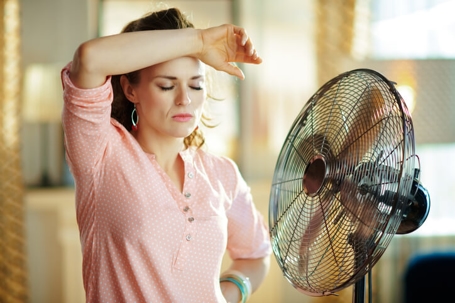Is your home beginning to feel more like a sauna? Excess humidity indoors can make your living spaces uncomfortable and even unhealthy. For many homeowners in the Dallas-Fort Worth area, battling that sticky, muggy feeling is a frustrating challenge. The good news is that there are specific reasons behind your home's humidity problem, and with the right solutions, you can regain control of your comfort. Let's unpack why your home might feel so humid, what the consequences could be, and what you can do to fix it.
Likely Reasons Why Your Home Feels Humid
Several factors tied to your HVAC or plumbing system might be causing excess humidity in your home. Understanding these can help narrow down the issue.
HVAC-Related Causes
- Oversized or Undersized AC Unit: A cooling system that’s too large will “short cycle,” cooling your home too quickly without running long enough to dehumidify the air. On the other hand, an undersized unit struggles to cool, leaving moisture lingering in the air.
- Dirty or Clogged Air Filter: A neglected air filter restricts airflow, preventing your AC from effectively removing humidity.
- Leaky Ductwork: Air escaping from holes or gaps in ducts reduces your HVAC’s efficiency, impacting its ability to maintain a comfortable humidity level.
- Old or Improperly Maintained System: An older system or one overdue for a tune-up won’t perform as well at moisture control. (Yes, your AC can help dehumidify your home if it's working properly! Learn more here.)
Plumbing-Related Causes
- Hidden Plumbing Leaks: A small, slow pipe leak can introduce moisture into the air and raise indoor humidity.
- High Water Usage Areas: Bathrooms, kitchens, and laundry rooms create natural areas for increased moisture, especially if exhaust fans aren’t used properly.
- Clogged Drains or Overflowing Appliances: A backed-up drain or an improperly functioning dishwasher or washing machine can add to your home’s mugginess.
Consequences of a Home with High Humidity
Excessive indoor humidity is more than just a comfort issue. Here are some of the common consequences you may face:
- Mold and Mildew Growth: Persistent high humidity creates the perfect conditions for mold, which can damage your walls, furniture, and health.
- Poor Indoor Air Quality: High moisture levels encourage dust mites and other allergens to thrive, worsening conditions like asthma or allergies.
- Damage to Your Home: Peeling paint, warped wood flooring, or condensation on windows are all common results of too much indoor humidity.
- Uncomfortable Living Conditions: Sticky, damp air makes it harder to enjoy your home, leaving you feeling hot and irritated.
- Higher Energy Bills: Humidity makes it feel hotter, and it takes longer to cool, so you may crank the AC more often, which drives up energy costs.
What Can Be Done to Make Your Home Feel Less Humid?
Luckily, there are plenty of ways to tackle humidity issues and restore a comfortable indoor environment. Here’s how you can take action:
Improve HVAC Performance
- Schedule an AC Tune-Up: Routine maintenance ensures your system is running at peak efficiency, including its ability to remove excess moisture.
- Install a Dehumidifier: If your home’s humidity persists even after HVAC adjustments, consider adding a whole-home dehumidifier to work alongside your system.
- Check and Fix Duct Leaks: Sealing ducts prevents air loss and improves moisture control.
- Upgrade Your Air Conditioning System: If your current unit is outdated or improperly sized, replacing it with a more efficient system designed for your home could completely resolve the issue.
Address Plumbing Problems
- Find and Repair Leaks: Have a professional inspect for hidden plumbing leaks and fix them promptly to avoid moisture buildup.
- Improve Bathroom and Kitchen Ventilation: Use exhaust fans when cooking, showering, or doing laundry to reduce moisture in the air.
- Ensure Proper Drainage: Clear clogs and ensure appliances are draining correctly.
Additional Tips
- Use a Hygrometer: A digital hygrometer can help you monitor indoor humidity and maintain it between 30-60%, which is the recommended range for comfort and health.
- Weatherproof Your Home: Seal windows and doors to prevent outside humidity from creeping in.
Get Help with Humidity from Rescue Air and Plumbing in Dallas
Battling indoor humidity issues in your Dallas-Fort Worth home? The team at Rescue Air and Plumbing has the expertise to tackle your high-humidity problems. Whether your air conditioning needs a tune-up, you’re considering replacing your system, or you suspect a plumbing leak, we’re here to help you find the right solution.
Don’t settle for a sticky, uncomfortable home. Call Rescue Air and Plumbing today at (972) 201-3253 for a free second opinion or to schedule a consultation. We’ll get your home back to feeling cool, dry, and comfortable in no time.
Take the first step toward a comfortable, humidity-free home! Contact Rescue Air and Plumbing today.

